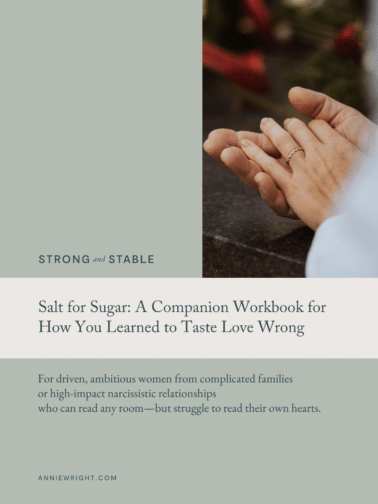TL;DR –Collusion—the act of enabling, excusing, or permitting abuse to continue—is itself a form of abuse that's often invisible yet profoundly damaging. While we easily recognize the father with the belt or the mother forcing diets, we miss how other family members who dismiss, minimize, or refuse to acknowledge the abuse become co-conspirators in the harm. This collusion isn't always conscious; family members often perpetuate abuse through denial because it's what they've been trained to do or because the stakes of confronting the abuser feel too high. The damage compounds: not only does the original abuse continue unchecked, but victims experience gaslighting when entire systems deny their reality.
The particular cruelty of collusion is how it makes victims question their own perceptions—when your mother says "Dad's just being Dad," when siblings insist you're being dramatic, when the church demands forgiveness without accountability, you begin wondering if you're the crazy one. Healing requires seeing these dynamics clearly, understanding that those who enabled your abuse through inaction or denial were participants in it, and processing the complex feelings this recognition brings. You're not hysterical for being angry at family members who "weren't the abuser"—they maintained the conditions that allowed abuse to flourish, and recognizing this truth grounds you in your own reality.
Sometimes, it’s easy to spot the abuse that can contribute to a relational trauma case.
The father who takes off his leather belt and starts beating his child.
The mom who makes her perfectly normal 12 year old get on the scale and go on a restrictive diet until she loses weight.
The older brother who locks his younger sibling in the closet for hours when the parents leave the house.
The priest who inappropriately touches the young boy.
These examples are fairly visible and fairly obvious (to most of us) scenarios where we can point a finger and say, ah yes, there is abusive behavior.
What’s often less visible and less acknowledged is the role collusion may play in these scenarios, how it also counts as abuse, and what the very particular and detrimental impacts of it can be.
Because collusion plays such an enormous role in dysfunctional family relationships (not to mention national politics), I thought it was worth talking about today.
What does it mean to collude with abuse?
Before we can dive into the meat of today’s essay, we have to define collusion.
What is collusion?
Collusion is a word derived from the Latin word “colludere,” a combination of col- meaning “together,” and ludere- meaning “to play.”
In other words, col-ludere, to play together, to conspire, to act in unison or agreement towards some secret purpose.
To collude.
Stockbrokers and companies might collude to cash out on IPOs.
Friends might collude to plan a surprise party for another bestie.
And dysfunctional family systems might have collusion abuse to keep equilibrium, to keep the peace, to maintain homeostasis, often by explicitly or implicitly permissing or perpetuating bad behavior from one or more abusive figures.
For example:
“Oh, he didn’t really mean to hit you. He was just playing and you got in the way. Don’t be so dramatic!”
“Dad’s just being dad. Why do you have to be so angry and upset all the time?”
“Mom only wants the best for you. She wants you to have a better high school experience than she did. That’s why she’s taking you to Weight Watchers.”
“The Church teaches that we must forgive our parents no matter what. I’m sure he’s sorry but you have to forgive him.”
“I don’t want to hear what he did. That’s between you and him.”
Hear me out: collusion isn’t necessarily conscious and the intent isn’t necessarily to wound or abuse.
Meaning, family members often do this without deliberate awareness because, at some level, it’s what they’ve been trained and taught to know to do and/or the stakes feel too high to make other choices, even if they’re aware of those other choices.
Collusion like this – permission, excusing, perpetuating, rewarding, or anything else that lets the abuser keep getting away with the abuse – is abuse. Full stop.
Collusion may look “less obvious” and it may look “less damaging” than other forms of abuse but it’s not. Here’s why.
Curious if you come from a relational trauma background?
Take this 5-minute, 25-question quiz to find out — and learn what to do next if you do.
START THE QUIZWhy is collusion so damaging?
Abusers cannot keep abusing when faced with empowered, esteemed individuals who say, “NO. You cannot and WILL NOT do that.”
But abusers are kept in power when they are allowed to be in power.
Collusion is the act – again, be it conscious or unconscious – that allows the “more obvious” abuse to continue.
The abuser remains unchecked and unchallenged through collusion by a dysfunctional family system, a church, a broken social system, or a national political party.
And in this way, the act of collusion (which often looks like inaction – not actively stopping the abuser) is a form of abuse, too.
The abuse continues but, added to that, there’s another way that collusion can be so particularly damaging to the individual or people who are at the receiving end of the abuse: it can make them feel gas lit.
I’ve talked extensively about gaslighting before but, to my previous articles about it, I’ll say this:
Gaslighting doesn’t just happen when the abuser denies your reality.
Gaslighting happens when others surrounding the abuser don’t challenge them and often excuse them, therefore also denying your reality.
If your father was an alcoholic sociopath but no one in your family system was willing to talk about it or if people excused it, you might have questioned your feelings, your reality, the truth.
“Am I crazy? Is it really so bad? Am I the one with all the issues?”
Collusion can not only perpetuate bad behavior, but it can also make the recipient of the abuse less firm and convicted in their own experience.
It’s hard to stay grounded and rooted in your reality when a whole family, a whole church, or half of the country thinks you’re the hysterical one.
Why should we talk about collusion with abuse?
So why talk about this? What talk about collusion as a form of abuse?
Because, hopefully, when we know better, we do better.
We see the ways in which, perhaps, we unintentionally collude with abuse. Either at the micro or macro level.
We get curious about what the impact of dismissing our siblings’ protests might mean to them. Or what we’re actually doing when we cast a vote for an abuser.
We talk about this, not only to point fingers but also to take a look at ourselves.
But also, very importantly, we talk about collusion as a form of abuse so that you – if you come from a dysfunctional family, or church, or community – where you’ve experienced collusion with an abuser against you, you now feel less “crazy,” less confused, more grounded, more reassured.
Our healing is sped and fed by seeing things more clearly and when we feel more grounded in our reality and our truth.
I wrote today’s article so that it might help shed some light on why you feel so upset with certain members of your family or community, even if they weren’t the abuser.
I wrote this essay so that you could see the dynamics of your past a little more clearly.
So that you could feel less alone, and more importantly, more confident in your personal experience.
How do we heal from collusion?
And then, there’s the question:
If we’ve been at the receiving end of collusion, where do we go from here?
We see things clearly as they are and then we feel and process our feelings.
We ask: In what ways did the people and communities around me help perpetuate the abuse?
How do I feel as I notice this? Does recognizing this make my feelings towards them make more sense?
What do I need around this? Grieving work? Anger work? Do I need to speak up and say something?
I want to also provide some additional essays of mine that might support you if today’s post resonated with you:
- All The Little Fragments: Understanding Complex Relational Trauma
- THIS is what someone with a trauma history looks like.
- Dispelling The Myth of Child Abuse.
- Was my childhood traumatic?
- The power of being the “Black Sheep” in your family.
- Why you don’t “need” or “have to” forgive anyone if you don’t want or feel ready to.
Understanding Collusion’s Role Through Family Systems Trauma Therapy
When you describe to your therapist how your mother always said “that’s just how your father is” after his rages, or how siblings called you “too sensitive” when you tried to name the abuse, you’re identifying the invisible architecture of collusion that kept you trapped and confused for years. Understanding gaslighting becomes essential when entire family systems participate in denying your reality, making you the identified patient who’s “causing problems” by naming what everyone else refuses to see.
Your trauma-informed therapist recognizes that collusion creates a particular type of wound—not just from what was done to you, but from everyone who let it continue happening. They understand that your confusion about why you’re angry at your “nice” aunt who never hurt you makes perfect sense when that aunt consistently excused your father’s abuse, teaching you that your pain didn’t matter enough to protect you. The therapist helps you see that enablers aren’t innocent bystanders but active participants in maintaining the abusive system.
The therapeutic work involves mapping the family system’s collusion patterns: who minimized, who looked away, who actively defended the abuser, who made you the problem for speaking up. You explore how each person’s collusion shaped your reality—your mother’s denial teaching you not to trust your perceptions, your siblings’ dismissal making you feel crazy, extended family’s silence confirming you weren’t worth protecting. This isn’t about blame but about finally seeing clearly what you always sensed but couldn’t name.
Together, you process the rage, grief, and betrayal that comes with recognizing collusion. Your therapist validates that feeling abandoned by an entire system is sometimes worse than the original abuse—at least with the abuser, you knew where you stood. With colluders, you got gaslighting disguised as love, abandonment disguised as peacekeeping, betrayal disguised as family loyalty.
Most importantly, therapy helps you reclaim your reality. Every session where your therapist believes your experience without minimizing or excusing it rewires your nervous system’s expectation that truth-telling leads to abandonment. You learn that naming collusion isn’t causing family problems—it’s identifying problems that were always there, hidden beneath everyone’s complicit silence.
Here’s to healing relational trauma and creating thriving lives on solid foundations.
Warmly,
Annie





